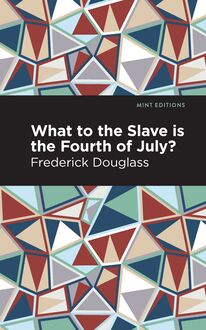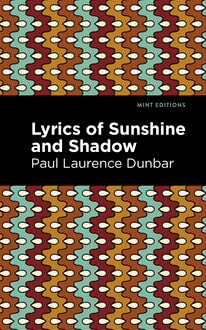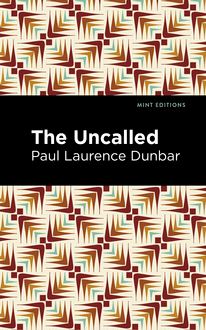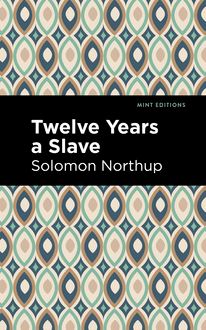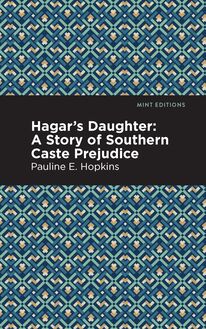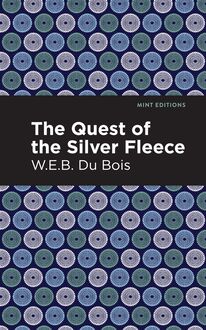-
 Univers
Univers
-
 Ebooks
Ebooks
-
 Livres audio
Livres audio
-
 Presse
Presse
-
 Podcasts
Podcasts
-
 BD
BD
-
 Documents
Documents
-
- Cours
- Révisions
- Ressources pédagogiques
- Sciences de l’éducation
- Manuels scolaires
- Langues
- Travaux de classe
- Annales de BEP
- Etudes supérieures
- Maternelle et primaire
- Fiches de lecture
- Orientation scolaire
- Méthodologie
- Corrigés de devoir
- Annales d’examens et concours
- Annales du bac
- Annales du brevet
- Rapports de stage
La lecture à portée de main
Vous pourrez modifier la taille du texte de cet ouvrage
Découvre YouScribe en t'inscrivant gratuitement
Je m'inscrisDécouvre YouScribe en t'inscrivant gratuitement
Je m'inscrisEn savoir plus
Vous pourrez modifier la taille du texte de cet ouvrage
En savoir plus

Description
Of One Blood (1902-1903) is a novel by Pauline E. Hopkins. Recognized as one of the earliest works of science fiction by an African American writer, Of One Blood was originally published in The Colored American Magazine, America’s first monthly periodical covering African American arts and culture. Combining themes of racial identity and passing within a genre-blending narrative of Gothic horror and the occult, Hopkins weaves a masterful tale of conspiracy, a lost African kingdom, and murder. Struggling with the mental and financial pressures of medical school, Reuel Briggs—a Black man who passes as white—decides to take a night off in order to attend a local concert. There, he sees the singer Dianthe Lusk, a beautiful woman who possess a mysterious aura. The next day, Reuel is called to assist at the scene of a train accident. There, he chances upon Dianthe, who has sustained a blow to the head. Using an experimental form of mesmerism, Reuel brings her back to life, but she seems to be suffering from near total amnesia. After nursing her back to health with the help of his best friend Aubrey, Reuel finds her a place to stay in Boston. Hoping to marry her, he offers to embark on an archaeological expedition organized by Aubrey, who claims to have discovered a lost Ethiopian kingdom. As the story unfolds, redemption turns to betrayal, best friends become sworn enemies, and a secret from the distant past threatens to change Reuel’s life forever. With this thrilling tale of race, adventure, and mystery, Hopkins proves herself as a true pioneer of American literature, a woman whose talent and principles afforded her the vision necessary for illuminating the injustices of life in a nation founded on slavery and genocide. With a beautifully designed cover and professionally typeset manuscript, this edition of Pauline E. Hopkins’ Of One Blood is a classic work of African American literature reimagined for modern readers.
Sujets
Informations
| Publié par | Mint Editions |
| Date de parution | 23 avril 2021 |
| Nombre de lectures | 0 |
| EAN13 | 9781513298283 |
| Langue | English |
| Poids de l'ouvrage | 1 Mo |
Informations légales : prix de location à la page 0,0450€. Cette information est donnée uniquement à titre indicatif conformément à la législation en vigueur.
Extrait
Of One Blood
Or, The Hidden Self
Pauline E. Hopkins
Of One Blood: Or, The Hidden Self was first published in 1903.
This edition published by Mint Editions 2021.
ISBN 9781513296784 | E-ISBN 9781513298283
Published by Mint Editions ®
minteditionbooks.com
Publishing Director: Jennifer Newens
Design & Production: Rachel Lopez Metzger
Project Manager: Micaela Clark
Typesetting: Westchester Publishing Services
C ONTENTS I II III IV V VI VII VIII IX X XI XII XIII XIV XV XVI XVII XVIII XIX XX XXI XXII XXIII XXIV XXV XXVI XXVII XXVIII XXIX
I
The recitations were over for the day. It was the first week in November and it had rained about every day the entire week; now freezing temperature added to the discomforture of the dismal season. The lingering equinoctial whirled the last clinging yellow leaves from the trees on the campus and strewed them over the deserted paths, while from the leaden sky fluttering snow-white flakes gave an unexpected touch of winter to the scene.
The east wind for which Boston and vicinity is celebrated, drove the sleet against the window panes of the room in which Reuel Briggs sat among his books and the apparatus for experiments. The room served for both living and sleeping. Briggs could have told you that the bareness and desolateness of the apartment were like his life, but he was a reticent man who knew how to suffer in silence. The dreary wet afternoon, the cheerless walk over West Boston bridge through the soaking streets had but served to emphasize the loneliness of his position, and morbid thoughts had haunted him all day: To what use all this persistent hard work for a place in the world—clothes, food, a roof? Is suicide wrong? he asked himself with tormenting persistency. From out the storm, voices and hands seemed beckoning him all day to cut the Gordian knot and solve the riddle of whence and whither for all time.
His place in the world would soon be filled; no vacuum remained empty; the eternal movement of all things onward closed up the gaps, and the wail of the newly-born augmented the great army of mortals pressing the vitals of mother Earth with hurrying tread. So he had tormented himself for months, but the courage was yet wanting for strength to rend the veil. It had grown dark early. Reuel had not stirred from his room since coming from the hospital—had not eaten nor drank, and was in full possession of the solitude he craved. It was now five o’clock. He sat sideways by the bare table, one leg crossed over the other. His fingers kept the book open at the page where he was reading, but his attention wandered beyond the leaden sky, the dripping panes, and the sounds of the driving storm outside.
He was thinking deeply of the words he had just read, and which the darkness had shut from his gaze. The book was called “The Unclassified Residuum,” just published and eagerly sought by students of mysticism , and dealing with the great field of new discoveries in psychology. Briggs was a close student of what might be termed “absurdities” of supernatural phenomena or mysticism, best known to the every-day world as “effects of the imagination,” a phrase of mere dismissal, and which it is impossible to make precise; the book suited the man’s mood. These were the words of haunting significance:
“All the while, however, the phenomena are there, lying broadcast over the surface of history. No matter where you open its pages, you find things recorded under the name of divinations, inspirations, demoniacal possessions, apparitions, trances, ecstasies, miraculous healing and productions of disease, and occult powers possessed by peculiar individuals over persons and things in their neighborhood.”
“The mind-curers and Christian scientists, who are beginning to lift up their heads in our communities, unquestionably get remarkable results in certain cases. The ordinary medical man dismisses them from his attention with the cut-and-dried remark that they are ‘only the effects of the imagination.’ But there is a meaning in this vaguest of phrases.”
“We know a non-hysterical woman who in her trances knows facts which altogether transcend her possible normal consciousness, facts about the lives of people whom she never saw or heard of before. I am well aware of all the liabilities to which this statement exposes me, and I make it deliberately, having practically no doubt whatever of its truth.”
Presently Briggs threw the book down, and, rising from his chair, began pacing up and down the bare room.
“That is it,” at length he said aloud. “I have the power, I know the truth of every word—of all M. Binet asserts, and could I but complete the necessary experiments, I would astonish the world. O Poverty, Ostracism! have I not drained the bitter cup to the dregs!” he apostrophized, with a harsh, ironical laugh.
M OTHER N ATURE HAD BLESSED R EUEL Briggs with superior physical endowments, but as yet he had never had reason to count them blessings. No one could fail to notice the vast breadth of shoulder, the strong throat that upheld a plain face, the long limbs, the sinewy hands. His head was that of an athlete, with close-set ears, and covered with an abundance of black hair, straight and closely cut, thick and smooth; the nose was the aristocratic feature, although nearly spoiled by broad nostrils, of this remarkable young man; his skin was white, but of a tint suggesting olive, an almost sallow color which is a mark of strong, melancholic temperaments. His large mouth concealed powerful long white teeth which gleamed through lips even and narrow, parting generally in a smile at once grave, genial and singularly sweet; indeed Briggs’ smile changed the plain face at once into one that interested and fascinated men and women. True there were lines about the mouth which betrayed a passionate, nervous temperament, but they accorded well with the rest of his strong personality. His eyes were a very bright and piercing gray, courageous, keen and shrewd. Briggs was not a man to be despised—physically or mentally.
None of the students associated together in the hive of men under the fostering care of the “benign mother” knew aught of Reuel Briggs’s origin. It was rumored at first that he was of Italian birth, then they “guessed” he was a Japanese, but whatever land claimed him as a son, all voted him a genius in his scientific studies, and much was expected of him at graduation. He had no money, for he was unsocial and shabby to the point of seediness, and apparently no relatives, for his correspondence was limited to the letters of editors of well known local papers and magazines. Somehow he lived and paid his way in a third-rate lodging-house near Harvard square, at the expense of the dull intellects or the idle rich, with which a great university always teems, to whom Briggs acted as “coach,” and by contributing scientific articles to magazines on the absorbing subject of spiritualistic phenomena. A few of his articles had produced a profound impression. The monotonous pacing continued for a time, finally ending at the mantel, from whence he abstracted a disreputable looking pipe and filled it.
“Well,” he soliloquized, as he reseated himself in his chair, “Fate has done her Worst, but she mockingly beckons me on and I accept her challenge. I shall not yet attempt the bourne. If I conquer, it will be by strength of brain and willpower. I shall conquer; I must and will.”
The storm had increased in violence; the early dusk came swiftly down, and at this point in his revery the rattling window panes, as well as the whistle and shriek of gusts of moaning wind, caught his attention. “Phew! a beastly night.” With a shiver, he drew his chair closer to the cylinder stove, whose glowing body was the only cheerful object in the bare room.
As he sat with his back half-turned to catch the grateful warmth, he looked out into the dim twilight across the square and into the broad paths of the campus, watching the skeleton arms of giant trees tossing in the wind, and the dancing snow-flakes that fluttered to earth in their fairy gowns to be quickly transformed into running streams that fairly overflowed the gutters. He fell into a dreamy state as he gazed, for which he could not account. As he sent his earnest, penetrating gaze into the night, gradually the darkness and storm faded into tints of cream and rose and soft moist lips. Silhouetted against the background of lowering sky and waving branches, he saw distinctly outlined a fair face framed in golden hair, with soft brown eyes, deep and earnest—terribly earnest they seemed just then—rose-tinged baby lips, and an expression of wistful entreaty. O how real, how very real did the passing shadow appear to the gazer!
He tried to move, uneasily conscious that this strange experience was but “the effect of the imagination,” but he was powerless. The unknown countenance grew dimmer and farther off, floating gradually out of sight, while a sense of sadness and foreboding wrapped him about as with a pall.
A wilder gust of wind shook the window sashes. Reuel stared about him in a bewildered way like a man awakening from a heavy sleep. He listened to the wail of the blast and glanced at the fire and rubbed his eyes. The vision was gone; he was alone in the room; all was silence and darkness. The ticking of the cheap clock on the mantel kept time with his heart-beats. The light of his own life seemed suddenly eclipsed with the passing of the lovely vision of Venus. Conscious of an odd murmur in his head, which seemed to control his movements, he rose and went toward the window to open it; there came a loud knock at the door.
Briggs did not answer at once. He wanted no company. Perhaps the knocker would go away. But he was persistent. Again came the knock ending in a double rat-tat accompanied by the words:
“I know you are there; open, open, you son of Erebus! You inhospitable Turk!”
Thus admonished Briggs turned the key and t
-
 Univers
Univers
-
 Ebooks
Ebooks
-
 Livres audio
Livres audio
-
 Presse
Presse
-
 Podcasts
Podcasts
-
 BD
BD
-
 Documents
Documents
-
Jeunesse
-
Littérature
-
Ressources professionnelles
-
Santé et bien-être
-
Savoirs
-
Education
-
Loisirs et hobbies
-
Art, musique et cinéma
-
Actualité et débat de société
-
Jeunesse
-
Littérature
-
Ressources professionnelles
-
Santé et bien-être
-
Savoirs
-
Education
-
Loisirs et hobbies
-
Art, musique et cinéma
-
Actualité et débat de société
-
Actualités
-
Lifestyle
-
Presse jeunesse
-
Presse professionnelle
-
Pratique
-
Presse sportive
-
Presse internationale
-
Culture & Médias
-
Action et Aventures
-
Science-fiction et Fantasy
-
Société
-
Jeunesse
-
Littérature
-
Ressources professionnelles
-
Santé et bien-être
-
Savoirs
-
Education
-
Loisirs et hobbies
-
Art, musique et cinéma
-
Actualité et débat de société
- Cours
- Révisions
- Ressources pédagogiques
- Sciences de l’éducation
- Manuels scolaires
- Langues
- Travaux de classe
- Annales de BEP
- Etudes supérieures
- Maternelle et primaire
- Fiches de lecture
- Orientation scolaire
- Méthodologie
- Corrigés de devoir
- Annales d’examens et concours
- Annales du bac
- Annales du brevet
- Rapports de stage

